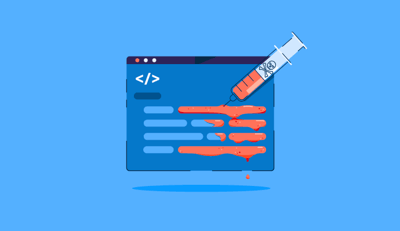November 8, 2024
 by Mara Calvello / November 8, 2024
by Mara Calvello / November 8, 2024

Think about your favorite gaming gadget.
Do they emit visuals or graphics against a black backdrop or have a grid like look? Playing games on smartphone, gadget or gaming station may be fun, but genius is to know the blood and sweat of software engineers that went into it.
What I mentioned above were two different kind of app interfaces: console and windows. These applications translate into endless threads of software code. It is the work of a proficient software engineer that burnt the midnight oil to write and execute programs, learn object-oriented concepts and correlate logics.
This may sound a bit complicated, but software engineering is an art of sorts. From learning the basics of structured query language (SQL) and C++, to practicing software development with application development platforms, software engineers are like parts of moving tech infrastructure.
Being in a role of software engineer doesn't translate into a 4x4 cubicle, but solving real world problems with automation.
As a part of the information technology sector, software engineering is an extension of computer science that includes application developments and coding software systems to solve computation-based or calculation-based problems. Some examples are reverse string, string concatenation, data structures and linked lists, and constructors and destructors.
To be a software engineer, first decide on what level of programming language you want to study. There can be two types of streams to choose once you become a high school graduate. Either science, technology, engineering and mathematics (STEM) or computer science. Then, to start with, you need to learn the ropes of algorithmic flowcharts and mathematical operators.
Mostly, engineers are grounded with the principles of high level language like C#, Visual Studio, SQL, Java, .NET framework, Python, Ruby on rails and Swift. Learning the concepts is easier than it appears because of fixed software framework and syntax formatting that these languages follow. To know how to muster your software programming skills, you need to hone the basics and practice regularly.
Next, in the early leg of your career, take guidance from an experienced software engineer who is a proficient reasoner, designer and mathematician in disguise. While there are numerous software engineering concepts, take the most basic route to learn them.
Within software engineering, you'll have to be acquainted with core concepts like data structure algorithms, decision trees, gantt chart, kernel, port forwarding, transfer protocols, servlets, conditional loops and container registries. Perfecting the basic object oriented programming (OOPs) concept first is a great way to channel your hard work and progress to this next level of specialization. Based on all that you have learnt, keep your online research and practice new codes with AI code generation platform to generate functional and compatible code. Also, download notebook editors or text editors for the software language you wish to learn. You can even learn how to compile, debug, run and control code with editors like C/ C++ integrated development environments, Python integrated environment or others.
These editors are not platform agnostic and don't work with every code. For example, Notepad++ supports Java and JavaScript but not C++. Knowing the right data studio for your code and installing the correct library is mandatory if you wish to become a software engineer.
A software engineer works to apply mathematical analysis and the overall principles of computer science to design and develop computer software. This could include anything from operating systems, computer games, business applications, network control systems, and more.
As a software engineer, you’ll have extensive knowledge about programming and coding, design and architecture, algorithms and data structures, hardware networking, how to debug and test software, and more.
Thanks to the increasing advancement in mobile technology, the role of a software engineer is in high demand. But first, you need to know where to start.
The first step in embarking on a career as a software engineer is to get a bachelor’s degree in computer science, computer applications, software engineering, computer programming, mathematics, applied computing or a related field. Bachelor’s degree programs for a software engineer will focus on digital logic, algorithm design, flowcharts, entity relationship diagrams, data structures, linked lists, binary searches and depth first searches, project planning, and a structured approach to programming.
Courses related to software development will center around computer programming, while computer security courses will target data security and what to do in the event of a data breach, in addition to the fundamentals of cryptography. There will also be courses that focus on project management and user interface.
During your time as a student, you’ll want to learn to code. It’s in your best interest to develop a comprehensive knowledge of programming, software, architecture, and software testing. Some coding languages you’ll want to be familiar with include Python, Ruby on rails, JavaScript, Ajax, C#, Java, PHP, Visual Basic and SQL.
A great way to learn some of these languages would be to either enroll in a coding bootcamp program or to pursue an internship. Doing so will also allow you to choose a specialization before you start applying for jobs, as there are many directions you can go once you get your degree.
After you graduate, you can choose multiple streams within the realm of software engineering. These include web development, DevOps, cloud computing, mobile data security, database management, relational database management, container engine, source code management, software intelligence platforms and technical stack.
One of the great aspects of wanting to become a software engineer is that when it comes to your title, they come in various shapes and sizes.
Some popular job titles include:
Those looking to become a software engineer can experience growth and opportunities in a multitude of industries, not just the tech industry. For instance, see what industries like healthcare, automotive, nonprofit, government, and finance have to offer someone with the skills to be a software engineer.
Tip: The software engineer job market is expected to grow by 30.7% between 2016 and 2026.
Source: CareerExplorer
No matter the industry or job title, a software engineer is likely to have specific duties they are responsible for day in and day out. As a software engineer, some standard protocols to follow are, ensuring team collaboration with fellow software engineers, communicating project progress, supervising data quality and quality control for software, building efficient applications and building rapport across all teams.
Other duties include:
As a software engineer, you’ll work with a client and assess their needs, then design, test, and develop computer software to meet those needs with other members of the team.
There can be some confusion as to the difference between a software developer and a software engineer. The main difference between these two roles is the actual job function.
-png.png?width=600&height=375&name=image%20classification%20vs-%20object%20detection%20(8)-png.png)
A software engineer will apply engineering principles to create software. Because of this, software engineers take part in software development by connecting the needs of the client with technological solutions. Engineers work at the backend of every product lifecycle and run system maintenance and administration checks for client-side devices within a company's premise.
A software developer or an extended software team is responsible for the entire development process, as well as the driving force behind the programs. Their job is to work with the client to create the design and then the computer programmers to develop the code needed to run the software.
A software engineer is involved with the development process, but a software developer will rarely be involved in the engineering process. When one is overseeing the engineering portion, the other is focusing on creating functional programs.
The salary of a software engineer is going to depend on your actual job title, the company you work for, and how much experience you have. In the United States, the average salary for a software engineer is $92,824 a year.
According to Builtin, typical ranges for a software engineer salary in 2024 are:
| Junior software enginer | $83,528 | |
| Robotic process automation developer (RPA developer) | $89,414 | |
| PowerBI developer | $100,015 | |
| Cybersecurity engineer | $156,342 |
No matter what career you’re interested in, it’s always a good idea to get some advice from those already in the field. We asked four experts and this is the advice they’d pass on.
“I started learning to write code as a teenager on our family Apple II+. The first language I learned was Applesoft Basic, and I read books and magazines and copied that code into the computer. When it worked, it was amazing! When it didn't, it was a puzzle to figure out why. I was hooked.
When I went to college, I didn't study computer science. I didn't see software engineering or software development as a career, so I graduated with a degree in liberal arts instead. Once I got out of college, I took a mainframe programming job and my title was statistician, but it would now be called a data analyst. I liked working there, but when the web became a thing, I knew it was my true calling.
Since then, I’ve been doing custom software engineering, developing, and consulting since the mid 1990s. I don't have any regrets about the way my career unfolded. I sometimes wonder how it would have been different with a CS or MIS degree. But the job of a consultant is to understand the customer's problems, think critically, explore all the options, and make a recommendation. My degree prepared me for all the non-coding aspects of my work. People think we spend all day writing code, and some do, but most spend a significant amount of time trying to better understand and work through business problems.”
- Joe Wilson, owner of Volare Systems
“All resources for learning how to code are available for free online. Software engineering and development communities are very open and helpful. Many people will eagerly share their expertise with others. It’s one of the things that characterizes this community.
Now that I know this, if I could do it all again, I would not have gone to the online bootcamp but would rather start researching the materials on my own. But then again, I probably wouldn't know what I was doing at that time without the experience I have today.”
- Daria Marczak, Front End Developer at Netguru
“Throughout my experience, I've learned that it's important to be a Yes Man (or woman). That is: say yes to everything you possibly can and provide reasonable expectations for what it will take. Everything is possible but not everything is profitable. Finally, I've learned that on the other side of being passionate about something, is being self-disciplined.
Self discipline is the difference between a coding statesman and a script kiddie. If I was going to do things differently, I'd be less stressed about where I wanted to be, and be more inclined to sit tight and lean in.”
- Dan Holmes, DevOps Engineer at Arc
“I've mostly worked as a freelance engineer and app developer. One of the benefits of working freelance is that you can jump from project to project. Especially short term projects (1-3 months) allow you to gain experience with a particular technology or stack, after which you move on to the next opportunity. You can find out what you like more quickly, or quickly improve a diverse set of skills.”
- Reinder de Vries, Founder of Learn App Making
Below are some additional career opportunities that you can explore before landing that high paying and secure software engineering job.
The dream of becoming an engineer isn't one dimensional. As a software engineer, you would find it rewarding to able to build software stacks that can better the workings of various industries and design radical improvements for existing system. Being a software engineer would inspire you to work in the interest of public welfare and help you do your bit and return the favor.
So roll up your sleeves, get ready to learn some code, and dive in with both feet.
Looking for a headstart in software development? Learn which app programming language will be the best choice to code your next tech stack.
This article was originally published in 2019 and has been updated with new information.
Mara Calvello is a Content and Communications Manager at G2. She received her Bachelor of Arts degree from Elmhurst College (now Elmhurst University). Mara writes content highlighting G2 newsroom events and customer marketing case studies, while also focusing on social media and communications for G2. She previously wrote content to support our G2 Tea newsletter, as well as categories on artificial intelligence, natural language understanding (NLU), AI code generation, synthetic data, and more. In her spare time, she's out exploring with her rescue dog Zeke or enjoying a good book.
Database administrators are more important than their title might reveal to the layman.
.png) by Kevin Indig
by Kevin Indig
Web applications power our online experience day in and day out. We connect, interact, shop,...
 by Soundarya Jayaraman
by Soundarya Jayaraman
If you are here, chances are you are considering implementing citizen development in your...
 by Gautam Nimmagadda
by Gautam Nimmagadda
Database administrators are more important than their title might reveal to the layman.
.png) by Kevin Indig
by Kevin Indig
Web applications power our online experience day in and day out. We connect, interact, shop,...
 by Soundarya Jayaraman
by Soundarya Jayaraman


